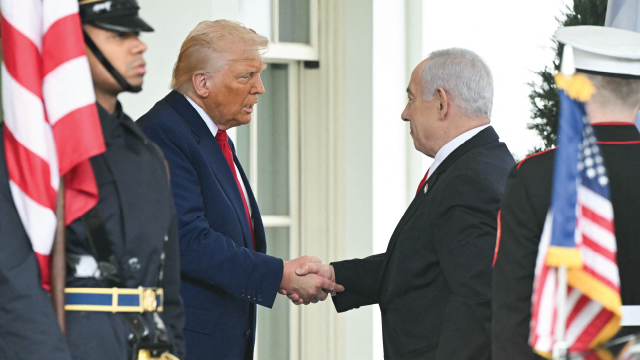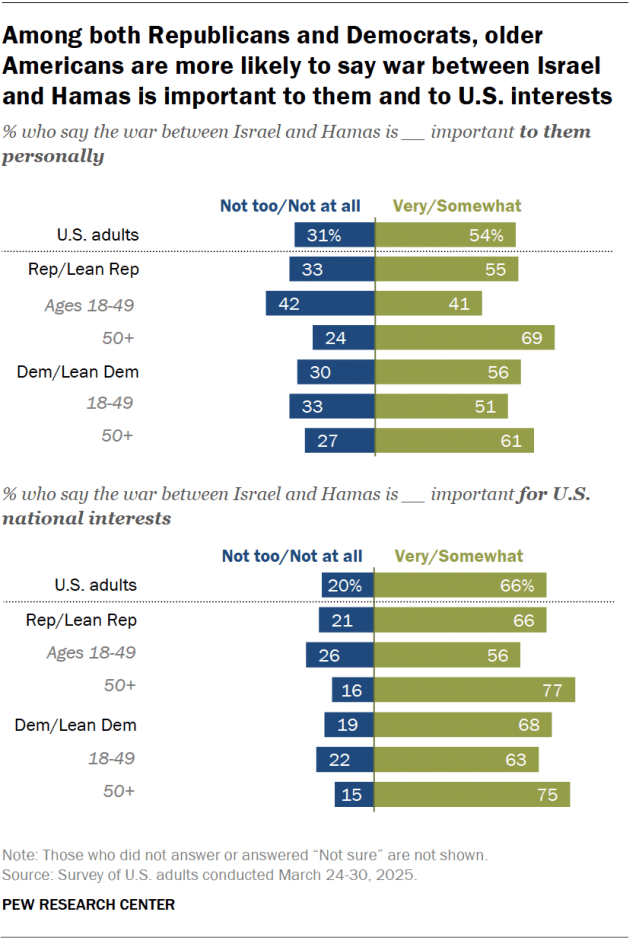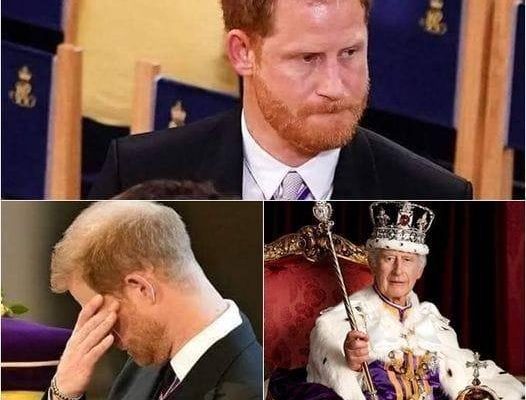How Americans view Israel and the Israel-Hamas war at the start of Trump’s second term

Israeli Prime Minister Benjamin Netanyahu visited the United States on April 7 for the second time since President Donald Trump took office.
As Americans look at the Middle East, fewer say the Israel-Hamas war is important to them personally – or important to U.S. national interests – than felt that way early last year, according to a new Pew Research Center survey.
In addition, the public’s views of Israel have turned more negative over the past three years. More than half of U.S. adults (53%) now express an unfavorable opinion of Israel, up from 42% in March 2022 – before the Hamas attack of Oct. 7, 2023, and the ensuing Israeli invasion of the Gaza Strip. (Pew Research Center regularly asks about attitudes toward countries like Russia, the U.S., China and others. Refer to the “How we did this” box for more details.)
Americans’ confidence in Israeli Prime Minister Benjamin Netanyahu also remains relatively low (32%), according to the new survey. The survey was conducted March 24-30 – just before Netanyahu’s most recent visit – among a nationally representative sample of 3,605 U.S. adults.
How important Americans say the Israel-Hamas war is to them personally
A slight majority of Americans (54%) say the Israel-Hamas war is either very or somewhat important to them personally. This is down from 65% who said the same in January 2024, a few months after the Hamas attack of Oct. 7, 2023.
Republicans and Democrats are about equally likely to describe the conflict as personally important. (In this analysis, all references to Republicans and Democrats include independents who lean toward each party.)
In both parties, people ages 50 and older are more likely than younger adults to say the conflict is important to them personally. But among Republicans, the gap between older and younger adults (18 percentage points) is wider than it is among Democrats (10 points). Younger Republicans are also considerably more likely than older Republicans to say they are not sure whether the war is important to them personally (17% and 7%, respectively).






